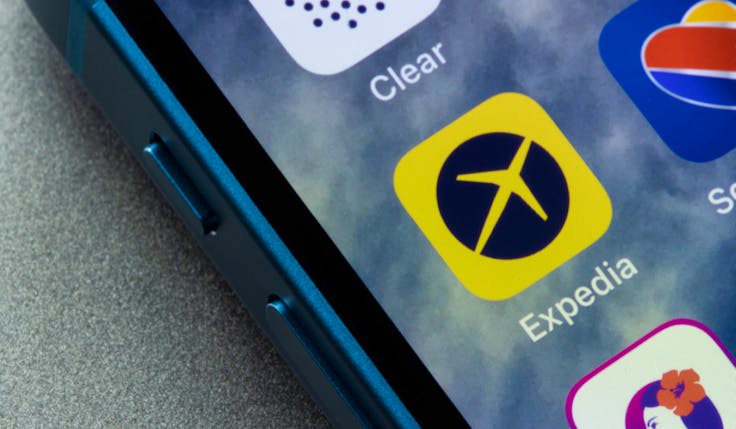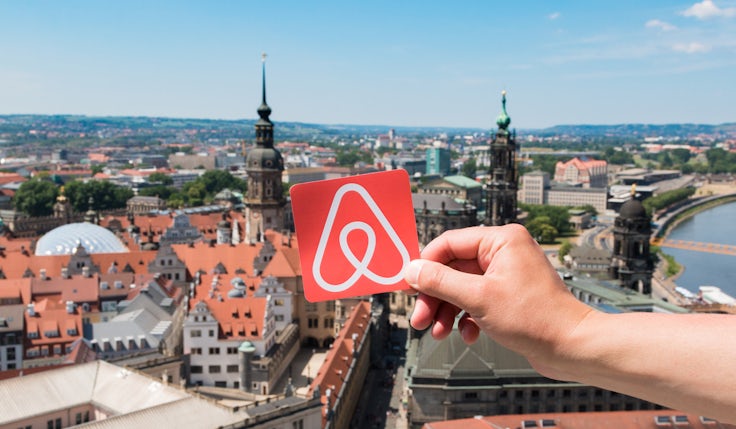Expedia shifts spend from performance to loyalty as it adopts ‘long-term’ view of growth
Expedia says it is bucking the norm for travel booking firms by focusing on growing customer lifetime value and retention over chasing individual transactions online.

Online travel group Expedia is moving away from being “transactionally focused” and spending the majority of its marketing budget on performance channels, instead switching attention to building “longer-lasting direct relationships with loyal high-lifetime value customers”.
That shift has seen the company invest more time and money into developing brand-building creative and better direct relationships with customers through loyalty and CRM, as it trades “modest short-term disruption” for “significant long-term growth”.
Last night (5 August) as the firm reported its results for the second quarter of 2022, Expedia CEO Peter Kern told investors that loyalty members and app users are far more valuable to the business than non-members and non-app users. He added that the “entire company is focused” on getting these kinds of customers into the business.
“We have been evolving our consumer approach from being largely transactionally focused, where we and the industry spent virtually all of our time tuning our products for maximum arbitrage and performance marketing channels and spending more and more money on intermediaries, to a future where we build longer-lasting direct relationships with loyal high-lifetime value customers,” Kern said.
“This means that we have not chased all traffic available in performance marketing, no matter the cost, and instead have focused on the pockets of consumers we think will derive the highest long-term value and the best future shape of our business.”
Ultimately, we intend to spend much less of our time and money chasing [customers] over and over again in the wild.
Peter Kern, Expedia
Over the past 18 months, in the group’s Expedia and Hotels.com brands, loyalty members have driven approximately three times the gross bookings per customer, more than twice the gross profit per customer, and twice the repeat business when compared to non-members, Kern claimed.
Likewise, app users drove over two and a half times the gross bookings per customer, two and a half times the gross profit per customer, and two and a half times the repeat bookings versus non-app users.
Expedia expects loyalty sign ups and app downloads to “accelerate” as it builds better features and personalisation and launches one overarching loyalty programme to all customers, but said it is already seeing “strong traction” since switching its focus.
In the second quarter, 33% more new loyalty members joined compared to the same quarter in 2019. New app downloads were also 58% higher. Almost two-thirds of B2C gross bookings in Q2 were generated through direct traffic.
However, Kern warned investors that lifetime value doesn’t come through in financial numbers “instantly”, because of the frequency of travel for most consumers.
“While we have been gaining ground, building up our base of high lifetime value customers and are confident in their ability to drive future velocity, it is not as quick… as buying transactions through Google and other Meta channels,” he said.
“In general, we are willing to give up short-term unprofitable volume for longer-term sustainable growth. Because we know that at any given moment, a large portion of the traveling public is up for grabs, searching around for the best travel options.”
Despite serving “billions” of searches and customers every year, the travel industry has “rarely engendered true loyalty”, Kern said, adding that while traffic has never been an issue in travel, retention of customers has.
“We mean to once and for all change that dynamic by providing a product and set of services worthy of customer loyalty. And ultimately, we intend to spend much less of our time and money chasing them over and over again in the wild,” he said.IHG Hotels & Resorts heroes ‘revamped’ loyalty scheme with biggest campaign in a decade
In the second quarter of 2022 the company’s direct sales and marketing spend reached $1.5bn (£1.23bn), representing a 12% increase versus the pre-pandemic second quarter of 2019, and a 46% increase on the same period in 2021.
CFO Eric Hart said the business has continued to spend into the global recovery from Covid-19 to “capture demand”, but has also increased efficiency on marketing expense as a percentage of booked gross profit. Spend is now being allocated towards “higher lifetime value channels” such as paid app installs and brand creatives.
Revenues grew 51% year-on-year to $3.2bn (£2.64bn), and were up 1% from Q2 2019. The company said the number of lodging bookings made through its website was at the highest ever, generating $2.4bn (£1.98bn) of revenue, up from $1.53bn (£1.26bn) in the same period last year.
Hart said the company is aiming to be “aggressive in marketing” moving forward. The shifted focus onto loyal customers rather than transactions will also allow increased spend to work more efficiently, the business claimed.
Brand investment
Expedia first hinted at an evolved strategic focus towards loyalty over individual transactions in April last year, as it repositioned its brand under the banner ‘It Matters Who You Travel With’.
Alongside the tagline, Expedia’s new positioning included a tweak to its logo font, new product features, and a global marketing campaign. It marked the biggest brand spend for the company in five years.
Expedia’s then senior vice-president and general manager of brand, Shiv Singh, told Marketing Week the repositioning marked a “paradigm shift” in mindset for the brand, from “transaction-led” to “solutions-minded”. Singh left the company in October.
New product features launched on Expedia’s digital platform at the time aimed to make travel easier and more convenient, including a living itineraries feature to consolidate all reservations and tickets in one place in the mobile app and keep them automatically updated with any changes.
According to Singh, who only joined the business in January, the brand’s new strategy had been under development since Covid-19 hit.







